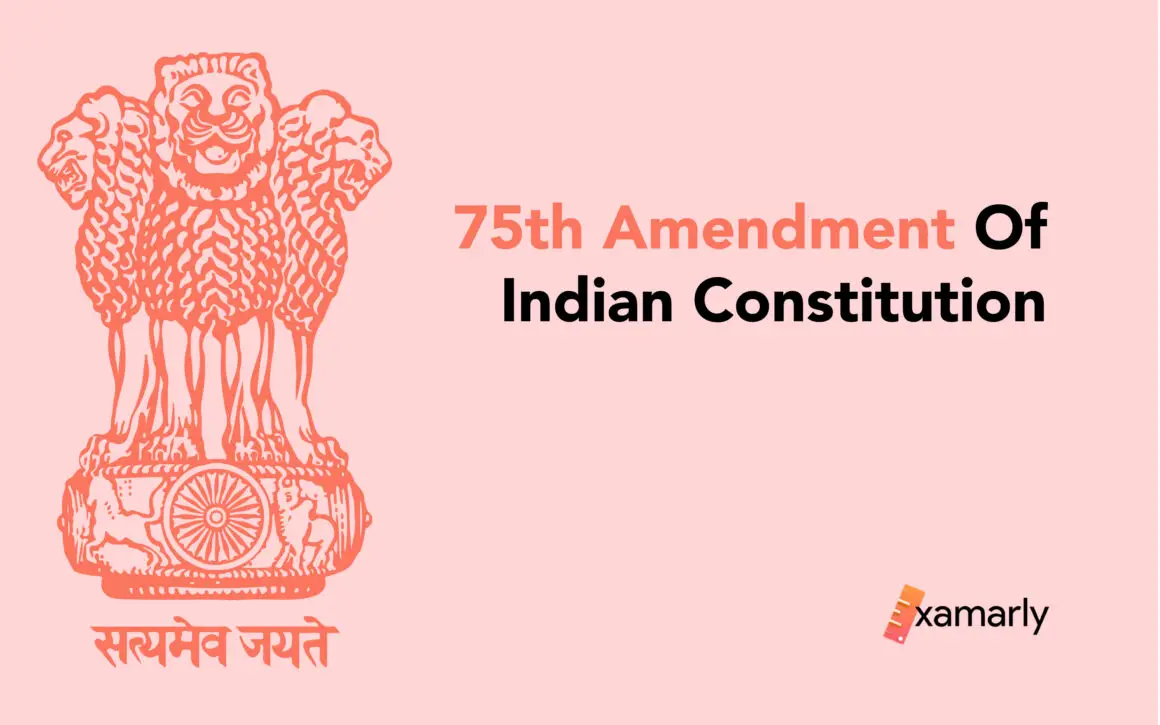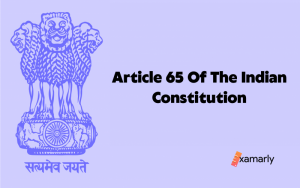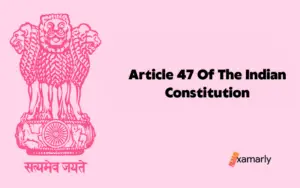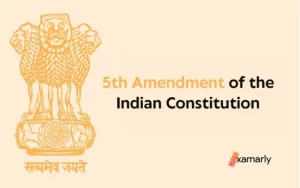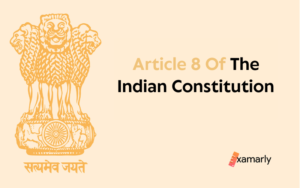The Constitution (Seventy-Fifth Amendment) Act, 1993 is the formal name of the 75th Amendment of the Indian Constitution. This contains provisions for the establishment of rent control tribunals.
Read this article further to learn more about the changes done by the 75th amendment of the Indian Constitution. Also, you will understand the reason behind the need for such an amendment and much more information.
This article will be worth reading for you if you are preparing for a competitive examination like UPSC. This is included in the Indian Polity of UPSC Syllabus.
75th Amendment of the Indian Constitution
On 15 May 1994, the Seventy-fifth Amendment came into effect. When this amendment was passed, Pamulaparthi Venkata Narasimha Rao was the prime minister. This amendment was passed in the forty-fourth year of the Republic of India.
This constitutional amendment modifies article 323B. It outlines the establishment of State-level Rent Tribunals. In accordance with Article 136 of the Constitution, this was done to limit the jurisdiction of all courts, excluding the Supreme Court.
Objects and Reasons
There are major weaknesses in the way that rent control laws now operate in a number of States. Moreover, it resulted in a number of unforeseen consequences.
Negative legal repercussions include mounting and unending litigation, the court’s failure to deliver timely justice, the evolution of practices and procedures to get around the operations of rent legislation, and the steady shrinkage of the rental housing market.
In the case of Prabhakaran Nair and others v. Status of Tamil Nadu (Civil Writ Petition 506 of 1986 and other writs), the Supreme Court noted the fragile state of rent litigation in the country. Further stated that the Supreme Court and the High Courts should be divested of the heavy burden of rent litigation.
Tiers of appeals should be reduced. Laws ought to be logical, rational, and unambiguous. Litigations need to be resolved fast. It would be wise to investigate the possibility of an all-India National Rent Tribunal with a quicker procedure.
The Constitution’s Part XIVA, Article 323B, is up for revision. This was done in order to eliminate the Supreme Court’s jurisdiction under Article 136 of the Constitution, establish State-level Rent Tribunals, and decrease the number of appeals stages. As a result, rent litigants will be able to receive timely relief.
The goals of the bill are those listed above.
Constitutional Amendment
75th amendment of the Indian Constitution amended article 323B. The Indian Constitution has made provisions for setting up State-level Rent Tribunals, which will provide timely relief to rent litigants. These tribunals will be able to decide disputes on rent and will be independent of all courts, except the Supreme Court.
Conclusion
In order to limit the authority of all courts, save the Supreme Court, under Article 136 of the Constitution, the 75th amendment of the Indian Constitution allows for the creation of State-level Rent Tribunals. It enforces on 15th May 1994.
In the interest of further readings:
FAQs on the 75th Amendment of the Indian Constitution
When 75th constitutional amendment came into effect?
The 75th amendment took effect on May 15, 1994. Pamulaparthi Venkata Narasimha Rao was serving as prime minister during the time when this amendment was approved. In the Republic of India’s forty-fourth year, this amendment was approved.
How has the Indian Constitution been altered by the 75th Amendment?
Article 323B of the Indian Constitution was revised as part of the 75th amendment. The establishment of State-level Rent Tribunals is provided for in the Indian Constitution, which will enable rent claimants to receive swift remedy. These tribunals will have the authority to decide conflicts about rent, and they will be completely independent of the other courts, with the exception of the Supreme Court.
What is Article 136 of the Constitution?
In accordance with Article 136 of the Indian Constitution, the Supreme Court of India, which is the highest court in the nation, has the exclusive authority to grant special leave to appeal against any judgment, order, or decree rendered in any matter or cause by any court or tribunal located on Indian territory.
What does Article 323B of the Indian Constitution deal with?
The sorts of tribunals, such as the Competition Appellate Tribunal (COMPAT), the National Green Tribunal, the Securities Appellate Tribunal (SAT), etc., are covered under Article 323B. The State Legislature as well as the Parliament may both create tribunals under article 323B.


